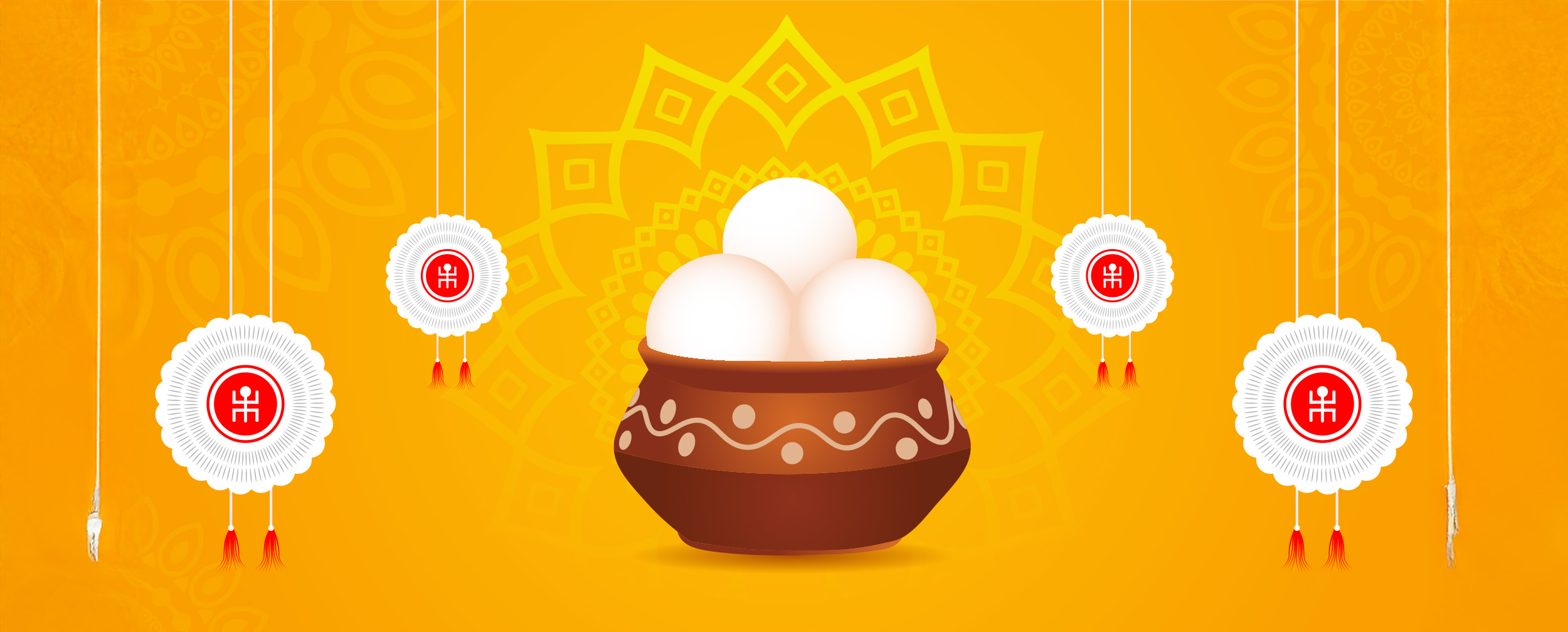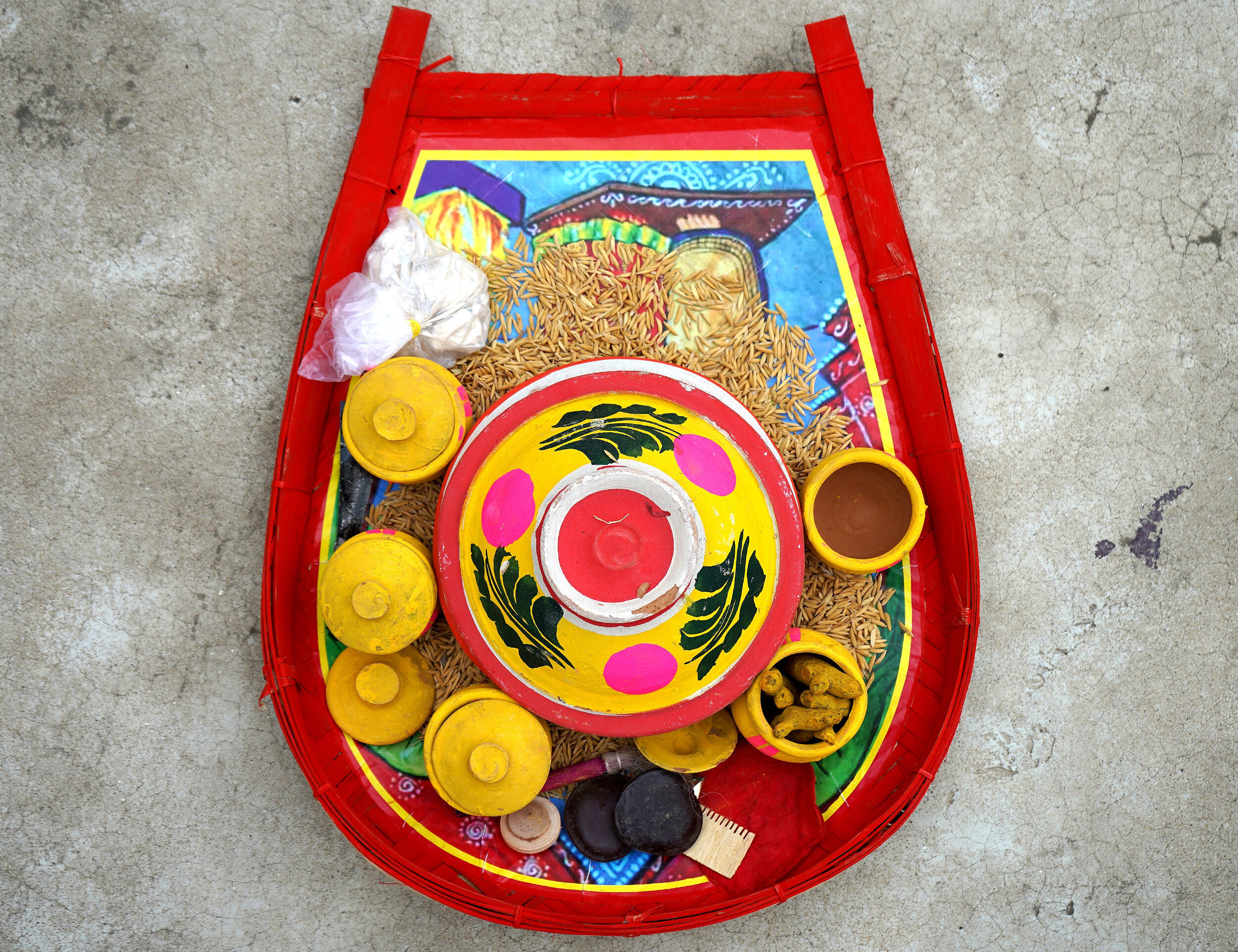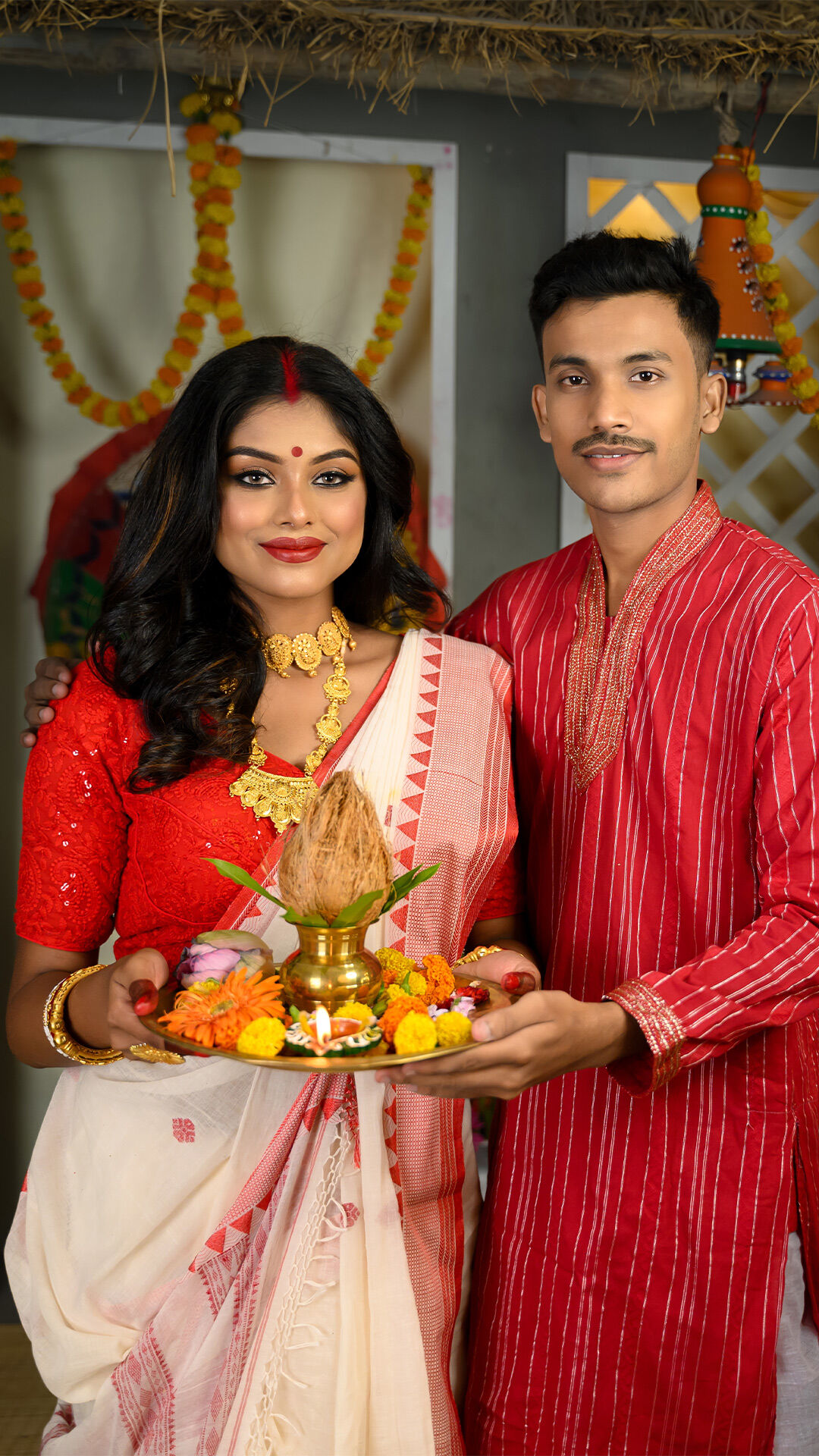STORIES BY DIWAS

Lifestyle
Shubho Noboborsho! A Vibrant Guide to Poila Baisakh Celebrations
Date 10 April 2025 Reading time: 7-10 mins
Poila Baisakh is not just a date on the calendar for Bengalis; it's a feeling, an emotion, a homecoming. As the fragrance of blooming shiuli flowers mingles with the mouthwatering aroma of basanti pulao and ilish maach, Bengalis across India and beyond come together to celebrate new beginnings. Whether you're in Kolkata, Mumbai or London, the festive fervour of Poila Baisakh is infectious. The air hums with palpable excitement as people prepare to welcome the Bengali New Year with open arms and hearts full of hope.
What is Poila Baisakh?
Poila Baisakh, also known as Pahela Baishakh or Naba Barsha, is the first day of the Bengali calendar. So when is Bengali new year? It usually falls on April 14th or 15th, marking the beginning of a new year. While the festival has roots in the rural agricultural communities of Bengal, today it is celebrated by Bengalis worldwide with great enthusiasm.
The History of Bengali Poila Baisakh
The origins of the Bangla new year history can be traced back to Mughal Emperor Akbar's reign in the 16th century. To streamline tax collection, which was based on the Islamic Hijri calendar, Akbar introduced a new calendar system called Bangabda or Bengali year in 1584 CE. This new calendar was a blend of Islamic and Hindu calendars, designed to align with the agricultural cycles of the region. However, some historians believe that the Bengali calendar existed even before Akbar's time, dating back to the 7th century during the reign of King Shashanka, making Bangla new year history much older.
The Significance of Bengali Poila Baisakh
So when is Bengali new year? What does it stand for? For Bengalis, Poila Baisakh in West Bengal is a time to let go of the past and embrace new beginnings with a spirit of joy and positivity. The festival coincides with the start of the harvest season, symbolising abundance and prosperity. Traditionally, on this day, traders and businessmen would close their old account books (haal khata) and open new ones, offering prayers to Goddess Lakshmi and Lord Ganesha for success and wealth.
Beyond its economic significance, Pohela Boishakh 2025 is a cultural extravaganza that brings people together. It's a day to dress up in new clothes, visit friends and family, and bond over sumptuous feasts. The festival transcends religious boundaries, with people from all walks of life partaking in the celebrations.
How is Bengali Poila Baisakh Celebrated?
The festivities of Poila Baisakh in West Bengal are as vibrant and diverse as the Bengali culture itself. From early morning cultural processions to elaborate family feasts, the day is filled with an air of celebration. Many people start the day with a visit to the temple, seeking blessings for a prosperous year ahead. The echoes of conch shells and ululation fill the air as devotees offer prayers.
One of the highlights of Poila Baisakh celebrations is the grand cultural processions or Prabhat Pheri. The procession features giant colourful masks, folk dancers, baul singers, and the famous Chhau dance performances. Men, women and children dress up in traditional attire - crisp dhakai sarees, kurtas and dhotis - as they walk along to the beats of the dhak (traditional Bengali drum).
Traditional Foods of Bengali Poila Baisakh
No Bengali celebration is complete without an elaborate spread of delicacies, and Poila Baisakh in West Bengal is no exception. On this day, families come together to enjoy a sumptuous feast featuring quintessential Bengali dishes. The star of the menu is often the panta bhat - fermented rice soaked in water overnight, served with fried hilsa fish, aloo posto (potato with poppy seeds), and begun bhaja (fried eggplant). Other Bengali Poila Baisakh specialities include basanti pulao (fragrant yellow rice), luchi (deep-fried bread), chholar dal (chana dal), and a variety of bhortas (mashed vegetables).
The meal ends on a sweet note with delectable Bengali mithais like roshogolla, sandesh, mishti doi, and payesh. Many sweet shops introduce special Pohela Boishakh 2025 themed sweets and snacks to mark the occasion. The aroma of these delicacies wafts through the streets, tempting passersby.
Cultural Performances and Rituals
Music and dance are an integral part of Bengali Poila Baisakh in West Bengal. Across Bengal, cultural programs showcase the rich heritage of Bengali music, poetry, and theatre. Rabindra Sangeet performances, poetry recitations, and folk dance recitals bring people together in celebration of their shared cultural roots. Baul singers, with their distinctive saffron robes and ektaras, add a mystical touch to the proceedings with their soulful renditions.
Another beloved Poila Baisakh tradition is the creation of alpanas or colourful floor art. Women and children decorate the entrance of their homes and courtyards with intricate alpana designs, often incorporating floral and paisley motifs. These vibrant patterns are believed to usher in good luck and prosperity.
The Impact of Bengali Poila Baisakh on Bengali Culture
Poila Baisakh is not merely a festive occasion; it is a cultural anchor that binds Bengalis across the globe. For those living away from their homeland, the festival is a nostalgic reminder of their roots and a way to stay connected with their heritage. Bengali associations and cultural clubs in various cities organise Poila Baisakh events, complete with food fairs, cultural programs, and adda sessions. These gatherings provide a platform for the Bengali diaspora to come together, celebrate their identity, and pass on traditions to the next generation.
The festival also has a significant impact on Bengali literature, art, and music. Many renowned Bengali poets and authors have written extensively about the joys and significance of Poila Baisakh. Rabindranath Tagore's famous poem "Esho Hey Baishakh" captures the essence of the festival, welcoming the new year with open arms. In the realm of music, several popular Bengali songs are dedicated to Bengali Poila Baisakh, evoking the spirit of celebration and new beginnings.
The Importance of Preserving Bengali Poila Baisakh Traditions
As the world becomes increasingly globalised, festivals like Bengali Poila Baisakh serve as important cultural anchors, reminding us of our roots and the rich tapestry of our heritage. By preserving and celebrating these traditions, we not only keep our cultural identity alive but also pass on valuable life lessons to future generations. Bengali Poila Baisakh teaches us to embrace change, let go of the past, and move forward with hope and positivity. It reminds us of the importance of community, togetherness, and shared joy.
So, this Pohela Boishakh 2025, let's don our new clothes, gather with loved ones, and welcome the Bengali New Year with open hearts now that you know when is Bengali new year. Whether you're feasting on panta bhat or dancing to the beats of the dhak, remember that you're part of a vibrant cultural legacy. As you gear up for the festivities, check out the stunning collection of festive kurtas by Diwas - the perfect attire for a memorable Poila Baisakh celebration.



